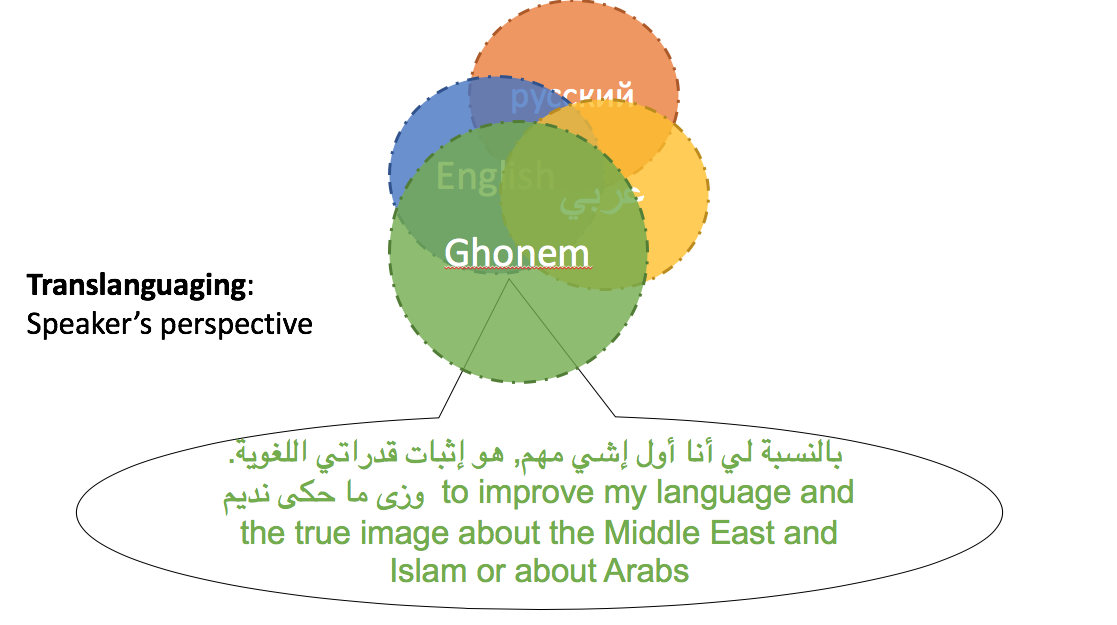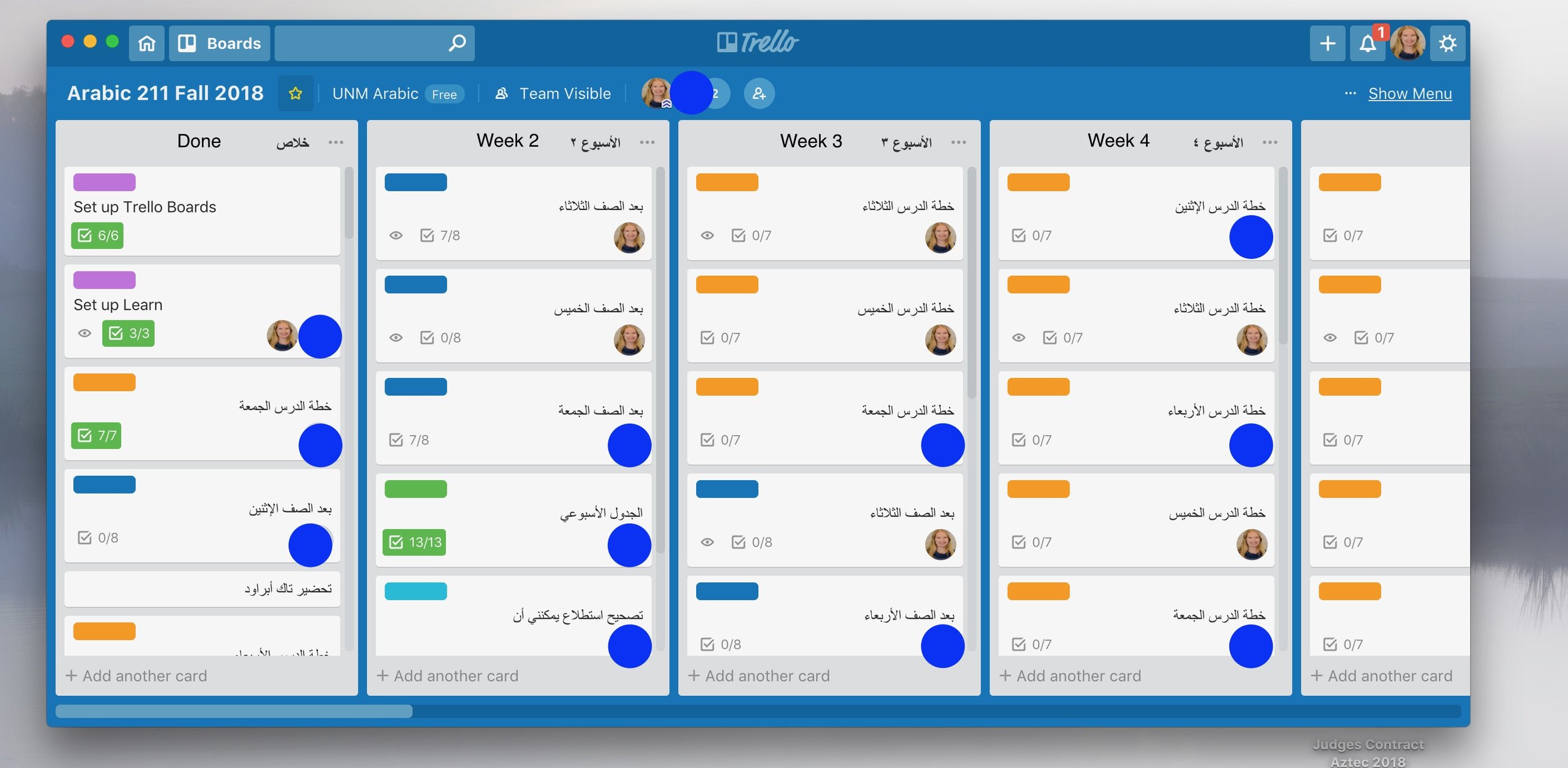Category: Language Teaching
-

Curriculum Development Part 3: Introducing Intentional Translanguaging Pedagogy
In my last post, I talked about why it is so important to be aware of language ideologies in the language classroom. One major reason is the class in expectations that can occur between students, teachers, and textbooks when there are ideological mismatches, as there is no ideology free classroom (despite what we sometimes pretend…
-

Using Trello to Organize Teaching
Trello is my favorite digital organization tool, and I use it to organize basically everything in my life. It essentially consists of “cards” that you put into “lists” on a “board”. I make a board for each class I teach where the lists are the weeks of the semester (including the week before and after) and…
-

Curriculum Development Part 2: Finding Texts
This post is part of an ongoing series as I document our process for developing curricular units inspired by genre-based approaches to language learning and translanguaging pedagogy. Previous posts in the series include a background post and choosing tasks (Part 1).
-

Genre-based approaches in the language classroom: the appeal and the challenges
I first learned about genre-based approaches to language teaching in a pedagogy class in graduate school, where we read two articles describing various aspects of the Georgetown German Curriculum. I was immediately attracted to this approach, and have been working to implement this type of curriculum for the last six years in our Arabic classes…
-

Curriculum Development Part 1: Choosing Assessment Tasks
As I mentioned last week, the current stage of our curriculum development is creating our own curriculum and materials. Given time constraints (a constant in teaching!) we are focusing on doing this only in our second year class in the upcoming academic year, and making only minor modifications to the other classes. With the permission…
-

Curriculum Development: The Background
The more I teach, the more I become interested in the process, and the complex interplays between theories of language, theories of pedagogy, context and practice. When I first started teaching, I would become frustrated when I couldn’t match what I envisioned as the “ideal” theory or practice to the classroom. Yet as I gain…
-

Making time and space for reflection as a language teacher
In my very first post, I noted the importance of reflection for intercultural learning during study abroad—that is, it’s not enough to simply have intercultural contact, but it’s also necessary to reflect upon this contact. This is also true for teaching—it’s not enough to receive training, and design curricula, and implement lessons, we also need…
-

Ideologies of Language and the Beginning Language Class: Part 2
Last week, I discussed several popular methods of organizing beginning language classes under the overarching critique of focusing on either decontextualized sets of language or prioritizing transactions over social relationships. This week, I’m focusing on what I am interested in implementing in my classroom, drawing from both functional theories of language and translanguaging pedagogy. Language…
-

Ideologies of Language and the Beginning Language Class: Part 1
Last week, I talked about how the language of social relationships is often overlooked in beginning language classes, and I think this is one reason students use English. As language teachers, I think we tend to view beginning language classes as the start of a language learning journey, or a step to more advanced classes…
-

Translanguaging Pedagogy: Recognizing social practices in the classroom
In my last post, I discussed some practices where I think translanguaging pedagogy simply gives us a new mindset on practices that already occur in the language classroom (or at least in my classroom). In this post, I want to focus on an area of the language classroom where I think we could be more…